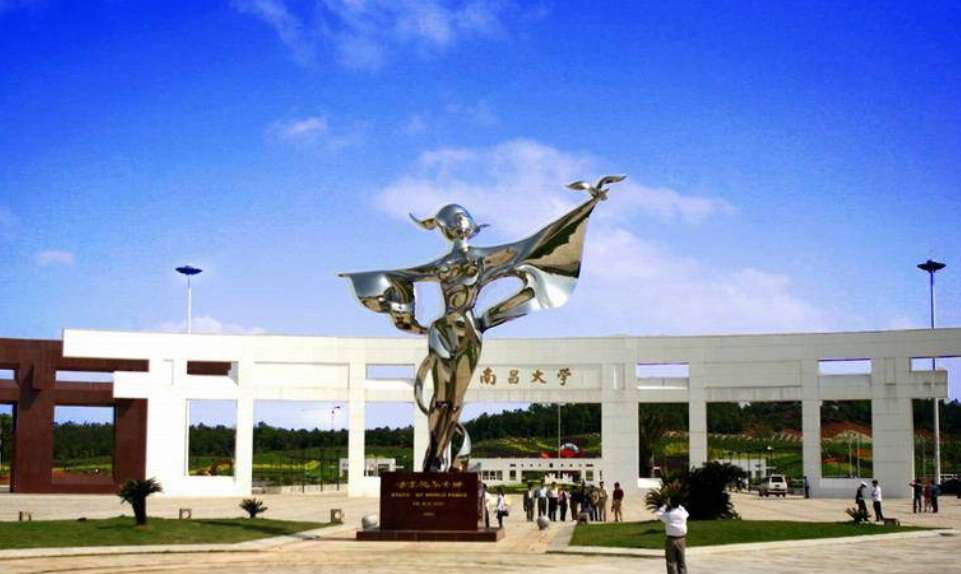
Introduction to Nanchang University(NCU)
Nanchang University (NCU) is a comprehensive university listed among the “the World First-class Disciplines” in the national “Double First-Class” Initiative of China, the only “211 Project” national key university in Jiangxi Province which is co-constructed by the Chinese Ministry of Education and Jiangxi Province, and the overall construction university of Jiangxi Province high-level universities construction project. Located in Nanchang, the City of Heroes, NCU consists of 4 campuses, which are Qian-Hu main campus, Qingshan-Hu campus, Dong-Hu campus and Poyang-Hu campus. Among them, the Qian-Hu main campus covers an area of more than 288 hectares and a building area of 1.5 million square meters.
The history of NCU dates back to Jiangxi Medical College, Jiangxi University and Jiangxi Industrial University, which were originated from Jiangxi Public Medical College and National Chung-cheng University founded in 1921 and 1940 respectively. In 1993, Jiangxi University merged with Jiangxi Industrial University to form Nanchang University, which created a precedent for the reform of the national higher education system. In 2005, NCU and Jiangxi Medical College merged to form the new NCU, unveiling a new page of reform and development. Over the years, leadership of Central Party Committee and Central Government, the Ministry of Education, Jiangxi Provincial Party Committee and Jiangxi Provincial Government have attached great importance to the construction and development of NCU. “Nanchang University has unlimited prospects”, President Xi Jinping said when he first visited NCU in October 2008. In February 2016, President Xi visited Nanchang University again and delivered an important speech on the roles of universities played in scientific research innovation and talent cultivation. President Xi encouraged NCU to take a developing path of innovation and motivated the students to cherish time and fulfill dreams.
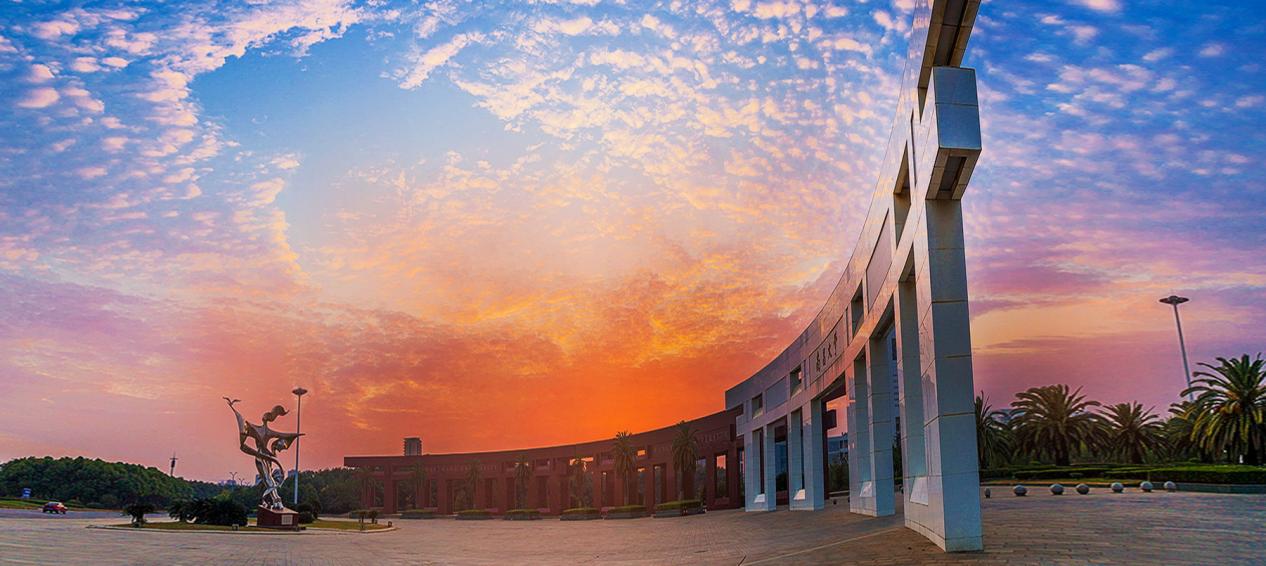
NCU has five faculties, namely Humanities, Social Sciences, Science & Technology (Division I), Science & Technology (Division II), and Medicine. It has 132 undergraduate programs with 12 subject categories, 3 national key (fostering) disciplines, 22 first-level subjects with doctor’s degree authorization, 3 categories of doctor’s professional degree authorization, 11 postdoctoral scientific research stations; 51 first-level subjects with master’s degree authorization, and 30 categories of master’s professional degree authorization. NCU has 5 affiliated hospitals, and 9 national clinical key specialist disciplines. The subject of Materials and Engineering was selected as a national “double-first-class” construction subject. 10 subjects rank among the first 1% of ESI in the world, in which the subject of Food Science and Engineering rank among the first 1‰ and is rated as A in the national fourth-round of subject overall level assessment.
The main campus of NCU has 4,358 staff members (2,717 are full-time teachers, and 1,638 of them have titles of professors or associate professors). Among them, there are 2 academicians of CAS, 1 academician of CAE, 3 dual-employed academicians, 1 academician of International Academy of Food Science, 75 national-level talents, 1 national excellent doctoral dissertation supervisor, 1 member of the discipline review group of the Academic Degrees Committee of the State Council, 2 national-level teaching teams, and 2 pilot construction sites of virtual teaching and research. NCU takes talent cultivation as its central task and considers fostering virtue through education as its fundamental mission. In recent years, a batch of advanced groups and models with professional ethics and dedication to the fostering of virtue through education has sprung up in NCU. For example, the Party Branch of Department of Critical Care Medicine at the First Affiliated Hospital has been accredited as the National-Level Advanced Grass-Roots Party Organization, National Silicon-Based LED Engineering Technology Research Center as the Advanced Collective in the National Education System, Engineering Mechanics Experiment Center as the Pioneer of National Workers, the team of teachers in the major of Food Science and Engineering as the Advanced Collective of Huang Danian-Style Team of Teachers in National Colleges and Universities, Jiang Fengyi and Zhu Xingen as national outstanding members of the Communist Party of China, Zou Defeng as the winner of the Florence Nightingale Medal (the highest honor award in the international nursing field; Wang Yu, Model Teacher in Jiangxi Province, and Shi Qiujie as the “motherly doctoral supervisor”, who represents the “four loves” spirit (love CPC and China, love job and dedication, love NCU as family, and love students as children) of NCU teachers.
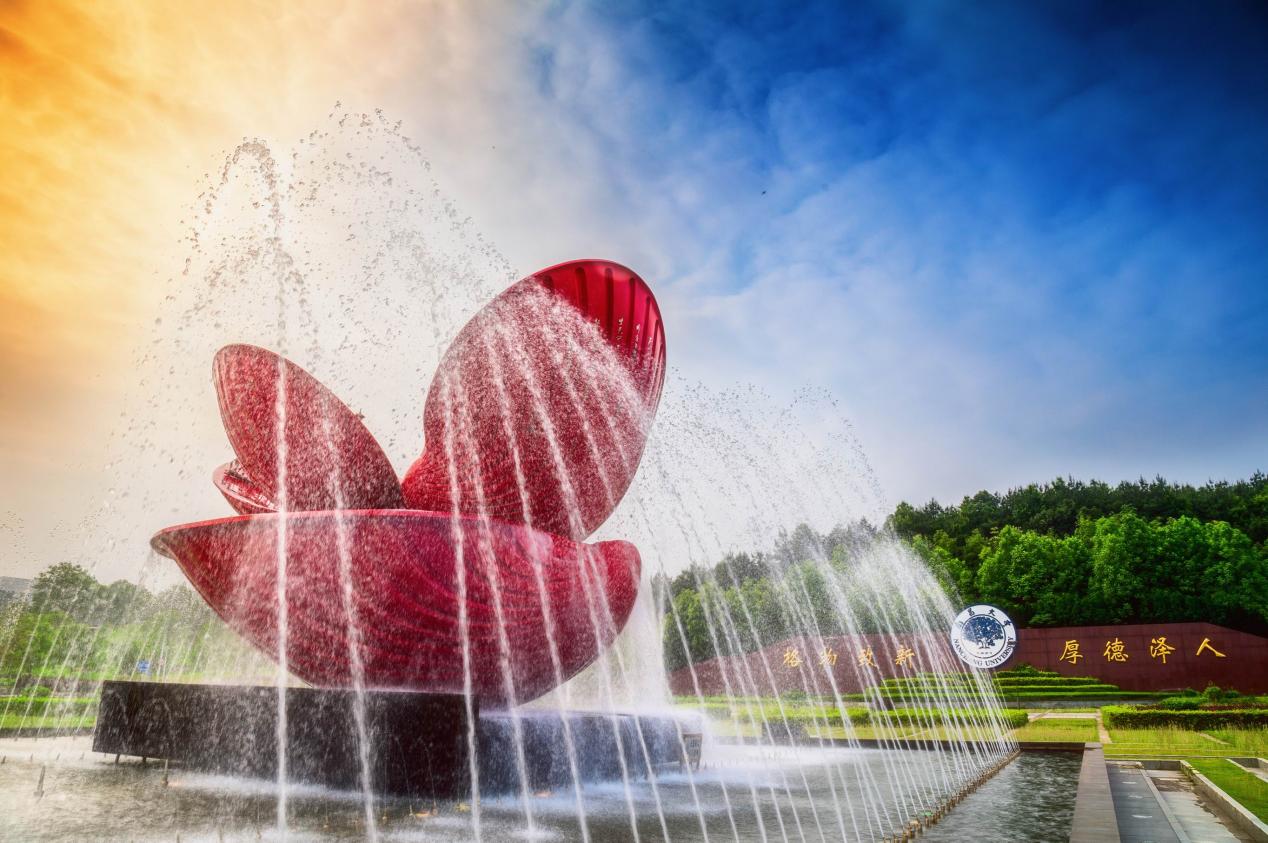
The main campus of NCU has 34,087 full-time undergraduates, 16,538 graduates of all categories and 1,762 oversea students. NCU actively promotes the reform of talent-cultivation models, namely the model of top-notch talent cultivation which features “three rules, three transformations, and three combinations”, the model of practical talent cultivation which treasures excellent talents, and the model of inter-disciplinary talent cultivation which stresses on double-degree and major-minor system. There are 4 curricula selected into national ideological politics demonstrative curricula, 4 distinguished teachers and teams into national ideological politics demonstrative curricula, 1 textbook into the First National Textbooks Construction Award for National Excellent Textbooks, 1 teacher into Advanced Individuals in National Textbooks Construction, 1 project into “university ideological politics high-quality projects”, 1 Party branch into Hundred Graduate Model Party Branches in Chinese Colleges and Universities, and 2 postgraduate students into Hundred Graduate Model Party Members in Chinese Colleges and Universities. NCU has won 2 “National Party Building Work Benchmark Faculty”, 4 “National Party Building Work Model Branches”, and 1 National Universities “Dual Leaders” Party Branch Secretary Workshop for Teachers. Since its establishment, NCU has cultivated more than 500,000 outstanding talents and made important contributions to the national and local economic construction and social progress.
NCU insists in fostering virtue through education as its foundation, considers talent cultivation as its central task, and maintains teaching as its basis and undergraduate teaching as its priority. NCU adheres to the “Double Ten Thousand” Plan of the Ministry of Education. 59 national first-class undergraduate major construction centers and 26 provincial first-class undergraduate major construction centers are granted. 30 curricula have been selected as national “first-class curriculum”, with the total number ranking 37th in China. NCU has won 5 second-prize of national teaching accomplishments for two years in a row. NCU is among the first batch of reform demonstration universities for deepening the innovation and entrepreneurship education. NCU is the master node university of China Education and Research Network (CERNET) in Jiangxi Province, and the only university in Jiangxi Province to participate in the construction for China Next Generation Internet (CNGI).
NCU has 1 State Key Laboratory, 1 National Engineering Technology Research Center, 2 National-Local Joint Engineering Research Centers, 1 National Demonstration International Science and Technology Cooperation Base, 1 China-Canada Joint Laboratory of Food Science and Technology (Nanchang), 2 Innovation Centers co-constructed by the Ministry of Education and Jiangxi Province, 1 Science and Technology Achievement Transformation and Technology Transfer Base, 1 National Intellectual Property Right Information Service Center, 1 National Red Tourism and Innovative Development Research Base, 1 National Ideological and Political Workforce Training Center, 1 National Genetic Testing Application Demonstrative Center, 2 key laboratories of the Ministry of Education, 3 engineering research centers of the Ministry of Education, 1 national science and technology zone, 2 national virtual simulation experimental teaching centers, 5 national experimental teaching demonstrative centers, 2 state-level college students’ off-campus practical education bases, 4 state-level engineering practical education centers, 9 Jiangxi Province Collaborative Innovation Centers, 3 “5511” major science and technology innovation cultivation platforms, 74 provincial and ministerial science and technology platforms (excluding affiliated hospitals), and 19 provincial key research bases for philosophy and social sciences. In 2021, NCU was awarded 326 projects of the National Natural Science Foundation of China, including 1 project for National Science Fund for Distinguished Young Scholars, 1 project for Excellent Young Scientists Fund, 2 key projects, 1 key project for international (regional) cooperation and exchange; and 26 projects for National Social Science Fund of China, including 1 key project for National Social Science Fund of China.
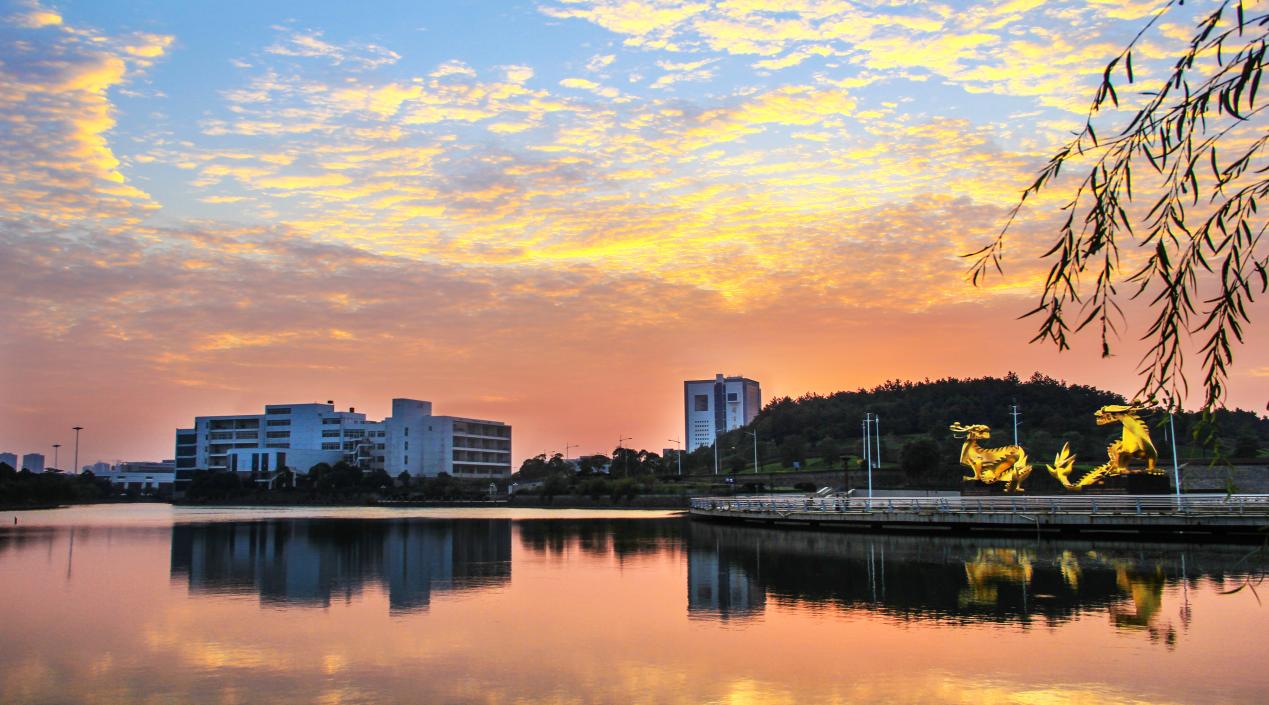
Enhancing the coordinated innovation capability, NCU has obtained a batch of original, marked and characteristic scientific research achievements. Professor Jiang Fengyi and his team’s project “silicon substrate high photosynthetic efficiency GaN-based Blue LED” won the first prize for national technological invention in 2015, which was the first time that a local institution of higher education had won the first prize since the national science and technology prize was established. Since then, the project has won many prizes for its innovative achievements for its continuous breakthrough of the “bottleneck” problems in the development of China’s LED industry and its boost for Jiangxi Province to build Nanchang Optical Valley. In 2019, among the five achievements of high luminous efficiency yellow LED technology accredited by China Illuminating Engineering Society, NCU has four internationally leading achievements and one internationally advanced achievement. The 7th China International College Students’ “Internet +” Innovation and Entrepreneurship Competition has set 23 Gold Awards (including 7 recommended international projects), of which NCU won 19 Gold Awards (including 7 recommended international projects) and won the championship of the finals. NCU ranked 28th on the 2017-2021 (undergraduate) List of the National College Students’ Competition published by the China Association of Higher Education, of which it ranked 9th in 2021. The high-level scientific research papers by NCU faculty members made breakthroughs and were successively published in Science and Nature’s sub-journals. NCU also carries out all-round multi-level cooperation with governments, enterprises and public institutions, promotes the transformation of scientific and technological achievements, and boosts the close combination of government, industry, university and research. In 2019 and 2020, NCU won the “advanced group” in the third-party evaluation of the effectiveness of the national targeted poverty alleviation work. The “rice and fishery project” team served the Rural Revitalization Strategy and won the “China Youth May 4th medal group”.
NCU has joined the China-Central Eastern European Countries Higher Education Institutions Consortium, the Belt and Road and BRICs International Alliance for Skills Development, China-Thailand Higher Education Cooperation Alliance, and Yangtze-Volga University Alliance, and China-Ukraine University Alliance. It is one of the founding universities of South Asia-Southeast Asia University Association, a member of the Eurasia-Pacific Uninet, a Standing Council Unit of China Education Association for International Exchange, a demonstration base of Study in China recognized by the Ministry of Education, the National Advanced Internet-based Test Site of HSK, and the only university in Jiangxi Province approved to simplify the procedures for going abroad on duty. NCU attaches great importance to international exchange and cooperation, maintaining stable exchanges and cooperative relationships with about 230 universities and research institutions in over 40 countries and regions. NCU has established Sino-German Research Institute, the Sino-Canada Joint Laboratory of Food Science and Technology (Nanchang), the International Science and Technology Cooperation Base on Food Safety, the International Food Innovation Research Institute, the International Materials Innovation Research Institute, and the first Russian language center in Jiangxi Province with Russian partners. The effectiveness and social impact of the cooperative project with Queen Mary University of London, UK, are continuously improving. NCU has co-established 4 Confucius Institutes and 2 Confucius Classrooms respectively in France, Spain and Indonesia, and established a Chinese Language Research Center in Russia. NCU has so broadened the channels of international exchange for students that more than 5,000 students of NCU have joined international exchange programs to study overseas in recent years.

In the new era, NCU (Nanchang University) persists in fostering virtue through education as its foundation, carries out three strategies (empowering NCU with talents, featuring innovation, and integrating industry and education) and abides by the development outlook of giving priority to the development of education, emphasizing the leading place of innovation, striving forward by cooperation and construction, tackling difficulties through reform and renovation, thriving the university with solid work, and elevating the quality to the top level. Being realistic and pragmatic, pioneering and innovative, NCU (Nanchang University) is striving for the grand goal of building a world-class university with Jiangxi and Chinese characteristics.
Application Procedure of Applying Nanchang University
1.Admissions Requirements:
| Programs of Nanchang University | Identity | Degree Requirements | Age | Language Requirement1(Programs Taught in Chinese) |
| Undergraduate Programs of Nanchang University | Non-Chinese citizens3 in good health | A senior high school diploma | 18-25 | An effective HSK 4 certificate2 is required before the academic study |
| Postgraduate Programs of Nanchang University | A bachelor’s degree | 18-35 | An effective HSK 5 certificate is required before the academic study | |
| Doctoral Programs of Nanchang University | A master’s degree | 18-45 | ||
| Non-degree Programs of Nanchang University | No | 18-60 | No | |
| Exchange Programs of Nanchang University | According to the agreement reached between the two universities | |||
Note:
Programs taught in English: An English proficiency of IELTS 6.0, a TOEFL score of 82 or passing NCU’s English test is required.
There is no HSK requirement for undergraduate program in Teaching Chinese to Speakers of Other Languages, and the age requirement is 18-28 years old.
According to the regulations, those who apply to study in Nanchang University as international students, should meet the following additional requirements: the applicants must hold valid passport or other relevant international recognized documents for at least 4 years; meanwhile, in the latest 4 years (by each April 30th of the year of University registration), the applicants must have lived overseas for 2 years (Living overseas for 9 months can be converted to 1 year, which is subject to the exit-entry stamp on visa).
2.Application Period: Full Year
3.Application Method:
Note:Applicants use the international students’online application system(http://apply.ncu.edu.cn) or scan the QR code to fill all the required information and submit documents.
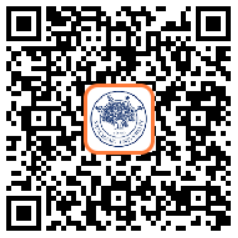
Note: Applicants who have any questions can write to us through the official e-mail: study@ncu.edu.cn.
(1) Application documents:
*Passport (valid for at least 12 months)
*The Highest Diploma
*Academic Transcripts
*Foreigner Physical Examination Form (within 6 months) Download the physical examination form from the attachment.
*No Criminal Record (within 6 months)
*Financial Statement (within 6 months)
*No Objection Letter and Performance (transfer students only)
*Master’s and doctoral applicants should provide two recommendation letters and Study Plan or Research Proposal, doctoral applicants also need provide a supervisor acceptance letter.
Valid HSK Certificate
Photo (Requirement:named in passport numbers, 2-inch color bareheaded photo on white background without border, at least 320×240 pixels, JPG format.)
Note: The documents with * must be scanned copies of the original materials. Non-Chinese or English materials shall be provided with Chinese or English translation.
(2) Applicants please pay close attention to the application website and check the results.
(3) Applicants who are admitted will receive the form of Visa Application for Study in China (JW202) and Admission Notice from Nanchang University.
(4) Applicants who are admitted please apply for the student visa (X visa) from the Chinese Embassy or Consulate in your country with related materials including the original copies of the form of Visa Application for Study in China (JW202) and the Admission Notice, etc.
(5) Applicants who are admitted to come to Nanchang University should be with the original form of Visa Application for Study in China (JW202) and the Admission Notice. In addition, the degree students should provide the highest original graduation certification to enroll, register and pay the tuition fee punctually according to the date which is stated on the Admission Notice. Please be sure to enter China with X visa, enroll and register 20 days early when your visa will expire, and do foreigner temporary registration within 24 hours at NCU after coming to Jiangxi Province, otherwise you will be responsible for all the possible consequences.
(1) Identity Demands:
a)International students with foreign nationality;
b). If both or one of the parents is a Chinese citizen and has settled in a foreign country, and he / she has foreign nationality at birth, he / she does not have Chinese nationality;
c). Hold a valid foreign passport or nationality certificate for more than 4 years (inclusive), and have a record of actual residence in a foreign country for more than 2 years in the last 4 years (before April 30 of the enrollment year) (the actual residence in a foreign country for more than 9 months in a year can be counted as one year, subject to the entry and exit signatures).
(2) Education Demands:
a). Undergraduate students are required to have graduated from high school;
b). Master’s students are required to have obtained a bachelor’s degree;
c). Doctoral students are required to have obtained a master’s degree.
5. Admission Notice:
International students who register for registration shall provide the following registration materials (original):
a). Admission notice of Nanchang University
b). Visa application form for foreign students in China (JW202) or (JW201)
c). Study visa in China (x1)
d). Highest education certificate
International students are required to report to our university for registration 20days before the entry check-in period, and to register for temporary
accommodation for foreigners at Nanchang University within 24 hours after
entering Jiangxi Province, otherwise they will bear the corresponding consequences.
Contact Information of Nanchang University:
International Students Admission Office,
International Education College of Nanchang University
Tel: +86 791 83968702
E-mail for Admission: study@ncu.edu.cn
Address: International Education College, Nanchang University, 999 Xuefu Road, Honggutan District, Nanchang, Jiangxi, P. R. China
Postcode: 330031
Website: iec.ncu.edu.cn
Fees of Studying at Nanchang University
1.Tuition Fee of Degree Programs of Nanchang University:
| Major/Category of Nanchang University | Arts | Sciences | Medicine |
| Bachelor’s Degree | 18,000 yuan/year | 19,000 yuan/year | 20,000 yuan/year |
| Master’s Degree | 23,000 yuan/year | 25,000 yuan/year | 30,000 yuan/year |
| Doctor’s Degree | 26,000 yuan/year | 27,500 yuan/year | 30,000 yuan/year |
| PreparatoryChinese Course | 13,000 yuan/year | ||
Note:
(1) Tuition fee, accommodation fee, insurance fee (800 RMB/person/year) and other fees must be paid through RMB account or U.S. dollar account.
(2) Nanchang University may adjust the tuition fee according to the relevant regulations.
(3) Tuition fees are waived for exchange students.
2.Tuition Fee of Non-degree Programs of Nanchang University:
| Programs of Nanchang University | Fees |
| Chinese Language Training Class | 4,000 yuan/semester8,000 yuan/year |
| Business Chinese Class(Intermediate/Advanced) | 3,000 yuan/period |
| HSK Level 3 Intensive SprintOnline Class | 1,000 yuan/period |
| HSK Level 4 Intensive SprintOnline Class | 1,300 yuan/period |
| HSK Level 5 Intensive SprintOnline Class | 1,600 yuan/period |
3.Accommodation Fee:
Nanchang University International Student Apartment provides harmonious, clean and comfortable accommodation for international students. Public kitchens and laundries are also available in the apartment.
| Room Types | Fees | Interior Structure |
| Double room(north Qianhu campus) | 7,500 yuan/person/year | Kitchen, Living Room, Bathroom, Balcony |
| Triple room(north Qianhu campus) | 5,000 yuan/person/year | Kitchen, Living Room,Bathroom, Balcony |
| Ordinary double room(south Qianhu campus) | 4,600 yuan/person/year | Public Kitchen,Bathroom, Balcony |
Note: The accommodation fee for exchange students is subject to the agreement reached between the two universities.
Degree Programs of Nanchang University
Recommendation for Separate Class Programs
| Majors of Nanchang University | Programs of Nanchang University | Teaching Languages |
| Software Engineering | Undergraduate & Postgraduate Program | English |
| Business Administration | Undergraduate Programs | |
| Computer Science and Technology | ||
| Materials Science and Engineering | ||
| Clinical Medicine | Chinese | |
| Teaching Chinese to Speakers of Other Languages | ||
| Material Forming andControl Engineering | English & Chinese | |
| Civil Engineering andWater Conservancy Project | Postgraduate Program |
Undergraduate Programs of Nanchang University
| School of Nanchang University | Programs of Nanchang University | |
| 1 | School of Humanities | Philosophy, Chinese Language & Literature,Teaching Chinese to Speakers of Other Languages, History, Archives Science |
| 2 | School of Journalism and Communication | Journalism, Radio & Television, Advertising,Arts of Broadcasting & Anchoring |
| 3 | School ofForeign Language | English, Russian, German, Spanish, French,Japanese |
| 4 | School of Art | Musicology, Dancology, Acting, Painting |
| 5 | School of Law | Law, Intellectual Property |
| 6 | School of PublicPolicy and Administration | Public Administration, Human Resource Management, Public Relations, Applied Psychology, Management Science, Electronic Commerce, Information Management & Information Systems, Sociology |
| 7 | School of Economics and Management | Economics, Finance, Business Administration,Accounting, Industrial Engineering |
| 8 | School of Tourism | Tourism Management,Exhibition Economy & Management |
| 9 | School ofPhysical Education | Physical Education, Sports Training |
| 10 | School of Physics and Materials Science | Materials Science and Engineering,Polymer Material and Engineering, Physics,Applied Physics |
| 11 | School of Mathematics and Computer Science | Mathematics & Applied Mathematics,Information and Computing Science,Financial Mathematics, Computer Science & Technology, Data Science & Big Data Technology |
| 12 | School of Chemistry and Chemical Engineering | Chemistry, Applied Chemistry, Chemical Engineering & Technology,Pharmaceutical Engineering |
| 13 | School ofAdvanced Manufacturing | Mechanical Design Manufacturing & Automation, Material Shaping & Control Engineering,Vehicle Engineering, Energy & Power Engineering, Intelligent Manufacturing Engineering,Measurement and Control Technology & Instrument |
| 14 | School ofInformation Engineering | Electrical Engineering & Automation,Electronic & Information Engineering,Communication Engineering,Artificial Intelligence, Automation |
| 15 | School of Software | Software Engineering, Cyberspace Security |
| 16 | School of Food Science | Food Science & Engineering,Food Quality & Safety, Biological Engineering |
| 17 | School of Life Science | Biological Science, Biotechnology, Ecology, Aquaculture Science |
| 18 | School ofResources and Environment | Process Equipment &Control Engineering, Water Supply and Drainage Science & Engineering, Resource Circulation Science & Engineering, Environmental Engineering |
| 19 | School ofInfrastructure Engineering | Civil Engineering, Building Environment & Energy Application Engineering,Engineering Mechanics, Water Resources Hydropower Engineering |
| 20 | School ofArchitecture and Design | Architecture, Urban and Rural Planning,Industrial Design, Visual Communication Design, Environmental Design, Product Design |
| 21 | Faculty of Medicine | Clinical Medicine, Anesthesiology,Medical Imaging |
| 22 | School ofBasic Medicine Sciences | Basic Medicine |
| 23 | School of Public Health | Preventive Medicine,Medical Laboratory Technology |
| 24 | School of Pharmacy | Pharmacology |
| 25 | School of Nursing | Nursing |
| 26 | First School ofClinical Medicine | Rehabilitation Therapeutics |
| 27 | Second School ofClinical Medicine | Intelligent Medical Engineering |
| 28 | School of Stomatology | Stomatology |
| 29 | School of Ophthalmology and Optometry | Optometry Medicine |
Postgraduate Programs of Nanchang University
| School of Nanchang University | Programs of Nanchang University | |
| 01 | School of Law | Law Sciences, Intellectual Property Law, Law |
| 02 | School ofEconomics and Management | Political Economics, Western Economics,World Economy,Population Resources & Environmental Economics, Regional Economics, Financial Science,Industrial Economics, Finance Studies, Statistics,Accounting Studies, Enterprise Management,Digital Business Management,Business Administration, Accounting,Industrial Engineering and Management,Applied Statistics |
| 03 | School of Humanities | Philosophy, International Chinese Education, Chinese Language & Literature, Chinese Classics, Chinese History, Archival Science |
| 04 | School ofForeign Language | English Language and Literature,Russian Language and Literature,Foreign Linguistics and Applied Linguistics,Japanese Language and Literature,English Translation, English Interpretation |
| 05 | School of Art and Design | Fine Arts, Music, Art & Calligraphy |
| 06 | School of Mathematics and Computer Science | Mathematics, Statistics,Computer Science & Technology,Computer Technology, Software Engineering,Network & Information Security |
| 07 | School ofPhysical Education | Physical Education |
| 08 | School of Life Science | Botany, Zoology, Microbiology, Genetics,Cell Biology, Biochemistry & Molecular Biology, Aquaculture Science, Ecology,Landscape Architecture |
| 09 | School ofAdvanced Manufacturing | Mechanical Engineering,Material Processing Engineering,Material Engineering Power Engineering & Thermophysics Engineering, Power Engineering, Instrumentation Engineering |
| 10 | School ofInformation Engineering | Information & Communication Engineering,Electronic Information Technology,Communication Engineering,Integrated Circuit Engineering,Biomedical Engineering,Control Science & Engineering,Control Engineering, Electrical Engineering, Artificial Intelligence |
| 11 | School ofInfrastructure Engineering | Dynamics, Civil Engineering,Heat, Gas Supply, Ventilation & Air Conditioning Engineering, Water Conservancy Project,Artificial Environmental Engineering |
| 12 | School of Resources andEnvironment | Fluid Machinery and Engineering,Chemical Process Equipment,Environmental Science & Engineering,Municipal Engineering, Power & Energy,Environmental Engineering |
| 13 | School of Physics and Materials Science | Materials Science & Engineering,Material Engineering, Physics, Photoelectricity Information Engineering,Space Plasma Physics & Technology, Astronomy |
| 14 | School of PublicPolicy and Administration | Psychology, Administration, Social Security,Land Resource Management,Information Resource Management,Management Science & Engineering, Social Work, Public Management, Library and information, Engineering Management, Political Theory,Chinese & Foreign Political Systems,Scientific Socialism & International Communist Movement, International Politics,International Relations |
| 15 | School of Marxism | Marxist Theory |
| 16 | School of Software | Cyberspace Security, Software Engineering |
| 17 | School of Journalism andCommunication | Journalism, Communication Studies,Journalism & Communication, Publication,Drama & Film Studies |
| 18 | School of Food Science | Nutrition & Food Hygiene, Food Science & Engineering, Biotechnology & Engineering,Food Engineering, Fermentation Engineering,Food Processing & Safety, Bioengineering |
| 19 | School ofArchitecture and Design | Industrial Design Engineering, Design Studies, Design, Architecture |
| 20 | School ofChemistry andChemistry Science | Chemistry, Chemical Engineering and Technology,Material & Chemical Engineering,Pharmaceutical Engineering |
| 21 | School of Tourism | Tourism Management, Chinese History |
| 22 | Institute forAdvanced Study | Microscale Science & Technology |
| 23 | School ofEducational Development | Higher Education, Educational Technology, Postgraduate Education,Educational Economy & Management, Education, Curriculum & Instruction, Andragogy |
| 24 | School ofBasic Medicine Sciences | Basic Medicine |
| 25 | Institute ofTranslational Medicine | Translational Medicine |
| 26 | School of Pharmacy | Pharmacology |
| 27 | School of Public Health | Clinical Laboratory Diagnostics,Public Health & Preventive Medicine,Public Health,Social Medicine & Health Management |
| 28 | School of Nursing | Nursing, Nursing Science |
| 29 | School of Stomatology | Stomatology |
| 30 | School of Ophthalmology and Optometry | Optometry, Ophthalmology |
| 31 | Faculty of Medicine | Internal Medicine, Pediatrics, Geriatrics, Neurology, Psychiatry & Mental Health,Dermatology & Venereology,Imaging Medicine & Nuclear Medicine, Surgery,Obstetrics & Gynecology, Ophthalmology, Optometry, Otolaryngology, Oncology,Rehabilitation Medicine & Physiotherapy,Sports Medicine, Anesthesiology,Emergency Medicine, Critical Care Medicine, Precision Medicine, Stomatology, Integrated Traditional Chinese & Western Medicine, General Practice, Pediatric Surgery, Orthopedics, Clinical Pathology, Radiation Oncology, Radiography, Ultrasound Medicine,Nuclear Medicine, Medical Genetics,Transfusion Medicine, Medical Technology,Health Management Medicine |
Doctoral Programs of Nanchang University
| School of Nanchang University | Programs of Nanchang University | |
| 01 | School of Law | Marxist Law Theory & China’s Constructionof the Rule of Law |
| 02 | School of Economicsand Management | Statistics |
| 03 | School of Humanities | Philosophy, Chinese Language & Literature |
| 04 | School of Mathematics and Computer Science | Mathematics |
| 05 | School of Life Science | Biology |
| 06 | School of Advanced Manufacturing | Mechanical Engineering,Material Processing Engineering |
| 07 | School of Infrastructure Engineering | Mechanics, Water Conservancy Project |
| 08 | School of Resourcesand Environment | Environmental Science & Engineering |
| 09 | School of Physics and Materials Science | Physics,Material Science & Engineering |
| 10 | Faculty of Medicine | Clinical Medicine, Dentistry |
| 11 | School of PublicPolicy and Administration | Management Science & Engineering |
| 12 | School of Marxism | Marxist Theory |
| 13 | School of Journalism andCommunication | Journalism and Communication |
| 14 | School of Food Science | Food Science & Engineering,Biology & Medicine, Nutrition& Food Hygiene |
| 15 | School of Chemistry and Chemistry Science | Chemistry, Chemical Engineering & Technology |
| 16 | Institute forAdvanced Study | Microscale Science & Technology |
| 17 | School ofBasic Medicine | Basic Medicine |
| 18 | School of Pharmacy | Pharmacy |
| 19 | School of Public Health | Public Health & Preventive Medicine |
| 20 | School of Nursing | Nursing |
| 21 | School of Stomatology | Stomatology |
Visit website of Nanchang University
Related : East China Jiaotong University International Students Prospectus
Related: Admissions in China